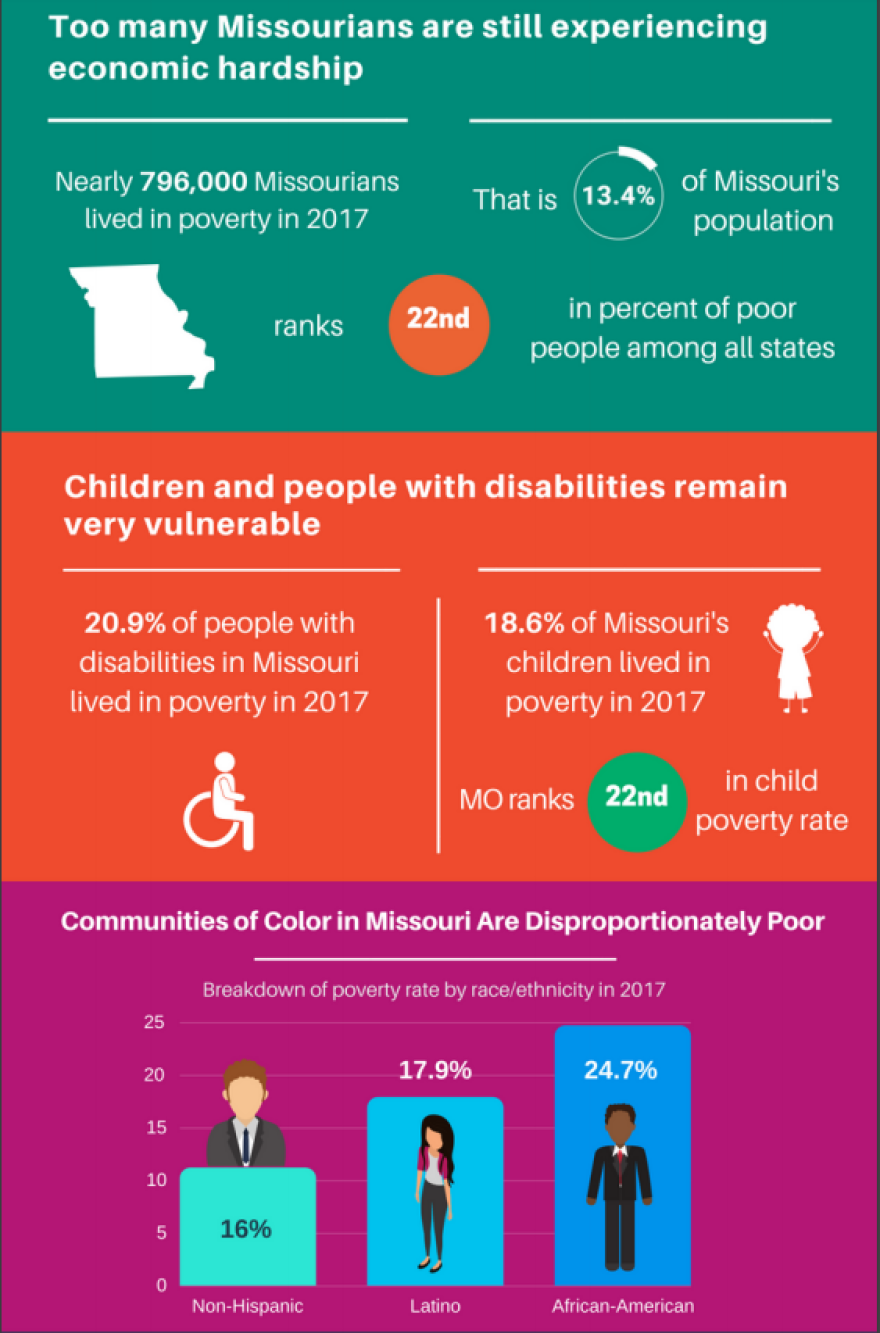More than half of Missouri’s poorest residents are paying more than half of their yearly income in rent. Non-profit leaders at two Missouri organizations say this level of rent burden prevents families from being able to afford other basic necessities, such as food and health insurance.
Empower Missouri released a report Thursday on the nearly 800,000 Missourians living in poverty, and nearly 2 million Missourians living near the poverty line. The U.S. Census Bureau reports that the state population is about 6 million.
The definition of poverty is a family of four living on a household income of $25,100 or less.
The report points to changes in policies on Medicaid and the food assistance program known as SNAP that may prevent people from being able to afford food and health care. Jeannette Mott Oxford, Empower Missouri executive director, said national and state policies can help move people out of poverty.
“When we make smart choices about public policy at the state and federal level, we make it easier for people to afford basic necessities,” Oxford said.
Poverty in Missouri has declined since 2016, but according to the report (released in partnership with Coalition on Human Needs), about 56 percent of people who earn less than $20,000 a year spend more than half their earnings on housing.
Poverty rates (Source: US Census Bureau):
- City of St. Louis: 20 percent
- St. Louis County: 10 percent
- St. Charles County: 5 percent
- Missouri: 13 percent
- United States: 12 percent
The report also found that nearly 13 percent of Missouri households could not afford food on their incomes and about 9 percent of residents had no health insurance last year.

The new state poverty analysis also considers racial demographics. In 2017, almost 25 percent of black residents, 18 percent of Latino residents and about 16 percent of people who identify as white lived in poverty in Missouri.
Poverty among black and Latino children in Missouri is high as well. Nearly 38 percent of black children, 22 percent of Latino children and 14 percent of white children lived in poverty across the state last year.
“The extreme level of poverty among children, and children of color in particular, is a national crisis,” said Deborah Weinstein, Coalition on Human Needs executive director.
Ashley Lisenby is part of the public radio collaborative Sharing America, covering the intersection of race, identity and culture. This new initiative, funded by the Corporation for Public Broadcasting, includes reporters in Hartford, St. Louis, Kansas City, and Portland, Oregon. Follow Ashley on Twitter @aadlisenby.




